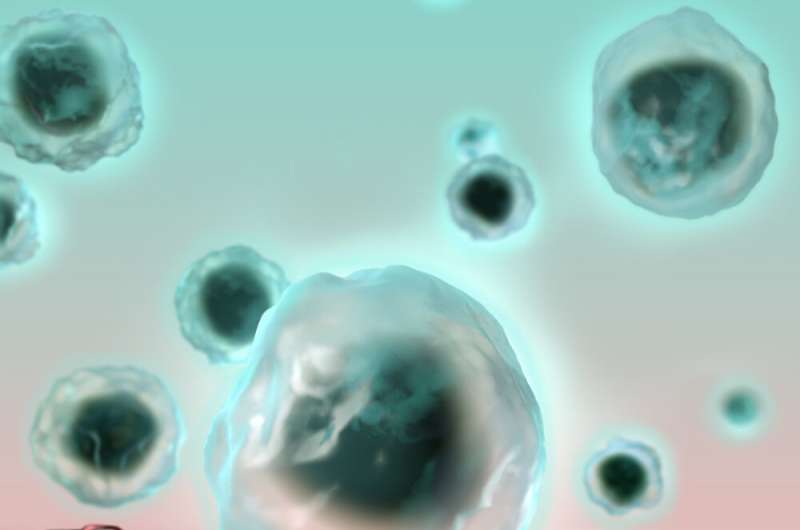
A large team of researchers affiliated with a host of institutions in Europe and the U.S. has found a gene that plays a critical role in natural killer cell differentiation. In their paper published in the journal Science Immunology, the group describes their work involving transcriptional and epigenetic profiling of natural killer (NK) cells and what they learned about them. Timo Rückert and Chiara Romagnani with the German Rheumatism Research Centre have published a paper in the same journal issue outlining the role NK cells play in the immune system and the work done by the team on this new effort.
NK cells play a role in the immune system, carrying out a wide range of functions related to combatting viral infections and also in responding to the development of cancer. In this new effort, the researchers sought to better understand NK cell differentiation, during which they undergo gene expression changes that allow them to play more specific roles in an immune response.
In order for NK cells to carry out all of their functions, they come with several types of inhibitory and activating receptors. Thus, the functions they carry out depend on which sorts of signals they get from other cells, such as cytokines. And as Rückert and Romagnani note, part of this process depends on NK cell differentiation. The results are subsets of NK cells equipped to handle different tasks. And in order for such differentiation to occur, there must be mechanisms that control the properties of the cells to ensure they are able to carry out the tasks that will be needed after differentiation has stopped. To better understand those mechanisms, the researchers conducted epigenetic and transcriptional studies geared toward identifying genes involved in the process.
Source: Read Full Article